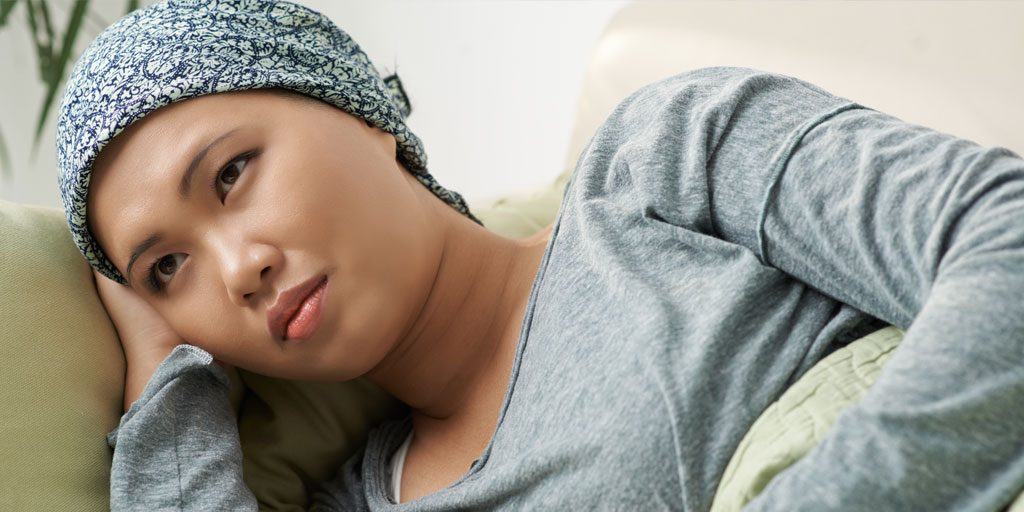How Changing Hormones Hurt Your Vaginal Health
Posted By:
Dr. Michael Coyle, DO FACOOG, FPMRS

The Impact of Changing Hormones
Women who have battled breast cancer and have come through the other side often find that the impact on their health and lives is far from over.
Breast cancer treatment before the onset of menopause can trigger menopausal symptoms such as hot flashes, night sweats, joint aches and vaginal dryness. These are symptoms of low estrogen, which can occur naturally as women age but can also be brought on by breast cancer treatment.
Some of these issues, such as hot flashes, can fade away with time. However, vaginal dryness, painful intercourse and changes in sexual function are more persistent and may even worsen with time.
While hormone therapy is often recommended to treat women who are naturally going through menopause, the use of hormones, specifically estrogen therapy, can be problematic for breast cancer patients. Studies have determined that even a woman’s own naturally produced estrogen can be a trigger for breast cancer recurrence.
Drugs such as Tamoxifen exemestane, anastrozole, and letrozole are all used to prevent the formation and absorption of estrogen in the body. Some women may even have their ovaries removed or treated with radiation to make them stop producing the hormones cancer needs to grow.
However, estrogen is key to the health of the vagina and other pelvic tissues. Decreased estrogen causes dryness of the vulva and vagina and can also impact vaginal pH levels, leaving women more vulnerable to vaginal, urinary tract and bladder infections.
Symptoms can include irritation such as burning or itching, chafing, discomfort during intercourse, unpleasant smelling discharge or light bleeding as vaginal tissue thinner, more delicate and prone to injury. Patients are more like to suffer from yeast infections and vaginal bacteriosis. The pelvic floor can weaken causing frequent urination or urinary incontinence that may get worse with time. These predictable changes are called the genito-urinary syndrome of menopause (GSM).
If vaginal dryness, painful intercourse and infections are an ongoing concern following breast cancer treatment, don’t be afraid to speak up. You deserve to be healthy and happy, and your comfort and sexuality are part of living a full life. Discuss options with your oncologist or breast cancer specialist about safe options, and consult with a urogynecologist at the Coyle Institute for a complete and holistic view of your pelvic health.
A urogynecologist can address all of these issues and help you find prescriptions, treatments, exercises or even simple home remedies that can help ease irritation and pain in the vaginal area.
Know your options and live the life you want.
Schedule an Appointment TodayA urogynecologist specializes in the treatment of the pelvic floor and can recommend techniques for overcoming sexual problems and easing symptoms such as urinary incontinence. By using several techniques together, such as relaxation, massage, pelvic exercises and lubricants, women who are not candidates for hormonal therapies can find a method that will work for their comfort and needs.
Topical or vaginal estrogen therapy is a treatment option for menopausal vaginal dryness and pain. Although no studies have conclusively shown a link between low-dose vaginal estrogen replacements and breast cancer recurrence, many oncologists are still hesitant to recommend it for fear that even low levels of estrogen could interfere with treatment or cause recurrence.
For these same reasons, hormonal replacement treatments such as phytoestrogens, estrogen patches, and progestogen are not recommended for breast cancer patients.
There are also newly developed laser treatments, such as the easy and painless diVa® Laser Vaginal Therapy offered by the Coyle Institute, which is proven to improve vaginal wall thickness, elasticity and moisture without hormones. diVa® requires no sedation, no surgery and no recovery time. It takes only 3 to 5 minutes to treat the full length of a vaginal canal, all in the comfort and safety of an in-office setting with minimal discomfort.
Everyday tips to help maintain overall vaginal health:
- Wear “breathable” cotton underwear and change underwear at least daily. Or consider going without underwear, especially while sleeping.
- Wear loose fitting pants, skirts or dresses. Tight-fitting underwear, leggings, jeans or pants can irritate with friction, sweating and a lack of circulation.
- Avoid using any soaps, detergents, deodorant sprays or feminine products with added fragrance. Even something that has not irritated your vaginal area in the past may cause issues with newly sensitive skin. Wash the vaginal area with plain water or use an unscented, mild soap alternative.
- Vaginal moisturizers can temporarily increase the water content of the vaginal cells. Ask us about recommended, available products.
- The use of water-based lubricants can help make intercourse more comfortable.
· And, as is good advice for anyone, practice safe sex in new relationships and quit smoking.
Contact the Coyle Institute today to learn more about options for vaginal health treatments or to schedule your consultation.

